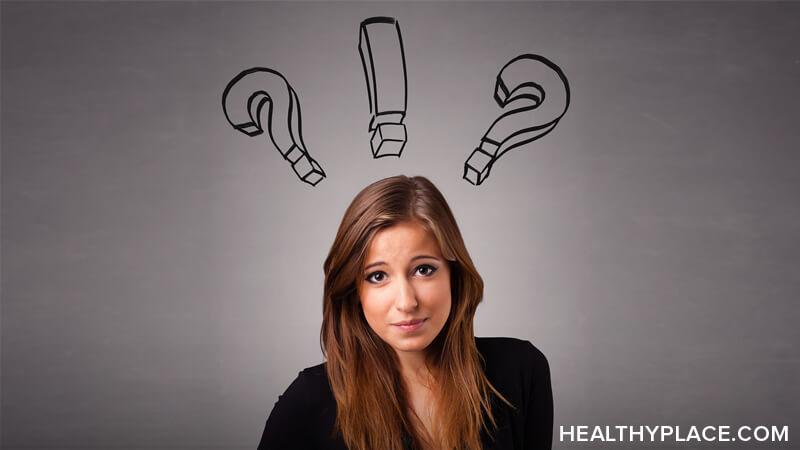Mental Health Labels: Helpful or Unhelpful?

Mental health labels and humans go together like unicorns and glitter. Some see the union as innocent and natural. Others see a mystical creature that doesn’t exist and tiny pieces of plastic headed for the ocean. Labels can free you, and they can chain you.
For example, I experienced firsthand the freedom of the "queer" label and the captivity of the "female" label. Like all categories, mental health classifications like borderline personality disorder (BPD) have a long and complex history. Whether they empower or inhibit differs for every label and every experience. For me, it did and still does both.
My Reaction to Mental Health Labels
One day, I believe it was a Wednesday, I sat across from my therapist as she read out a seemingly random list of letters — BPD, among others. In those first moments, I felt validated, relieved, and vindicated. I knew something was wrong, and here was the proof. At that time in my life, I constantly sought new identities, and these new labels sounded exciting. As a student of language and history, I proceeded to research the evolution of these labels. Let me tell you, the history of BPD is not a pretty one.
The general misogyny within the mental health field has improved drastically. But, there are still disproportionately more women diagnosed with disorders originally rooted in hysteria (like BPD).1 If you don't know, hysteria was a disorder thought to be caused by the uterus moving around the body and wreaking havoc. Hysteria facilitated, in part, the mass invalidation of women's emotional needs, perception of reality, and reactions to environments for thousands of years.1
As I researched, the excitement faded. Rather than using the label for empowerment, I started living up to it. I used it to invalidate my emotional needs, perception of reality, and reactions to my environment. (Now, where have I read that before?)
Labels may have enabled me to drag myself down, but they also gave me the option of empowerment. I now have the information I need to find solutions, coping skills, and community. The turning point came when I discovered online communities. It was a pretty big deal for me to read about real people with similar experiences to my own. Their stories were my stories. Stories I was afraid to voice — even to myself. I found the BPD community to be impressively understanding and compassionate.
More than the Mental Health Label: Borderline
Mental health labels are complicated things. They emancipate and educate, but they can also imprison and become internalized. I find it helpful to remember the function of mental health labels. Yes, they sometimes stigmatize, but they also help healthcare professionals find effective treatments. They educate therapists and psychologists and often grant access to insurance coverage, hospitals, treatments, and medication.
There are labels for literally everything, and they are constantly evolving. Yes, I have borderline, but I also have a cat. I bear the label BPD, but I am also a daughter, a friend, and an activist. Sometimes, I’m a student, sometimes, I’m a jerk, and sometimes, I don’t feel like a person at all. I am a multifaceted being, comprised of many different things. Boiling myself down to one label is an injustice and an insult to all the other colorful parts of who I am. I have BPD, but I am more than borderline.
What are your experiences with labels? Leave a comment and share your story below.
Source
- Ussher, J., "Diagnosing Difficult Women and Pathologising Feminity: Gender Bias in Psychiatric Nosology." Feminism and Psychology, 2013.
APA Reference
Brown, D.
(2022, April 12). Mental Health Labels: Helpful or Unhelpful?, HealthyPlace. Retrieved
on 2026, March 3 from https://www.healthyplace.com/blogs/borderline/2022/4/mental-health-labels-helpful-or-unhelpful
